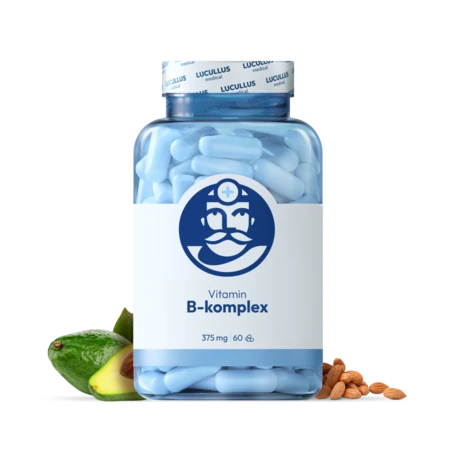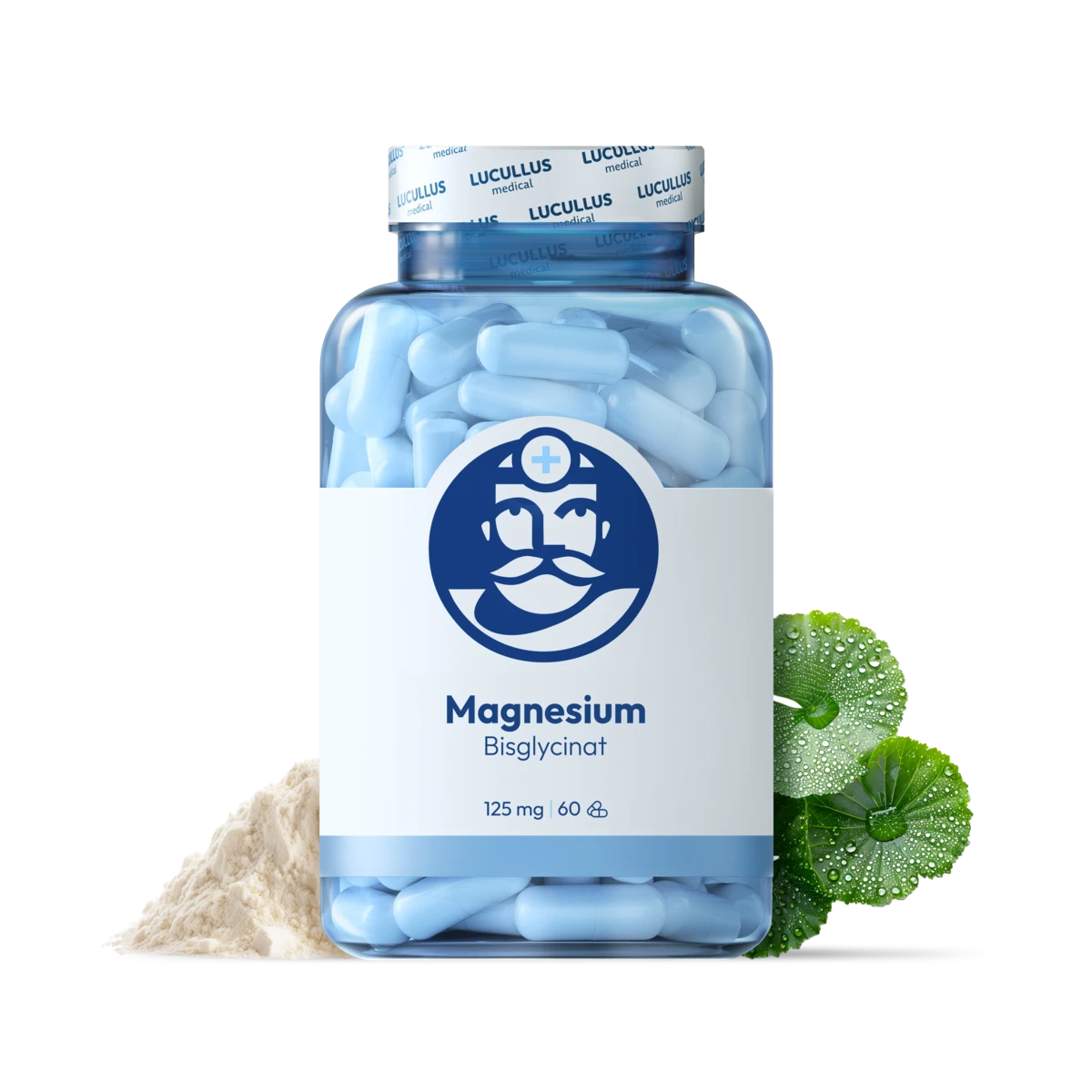
Calming Magnesium (Magnesium Bisglycinate)
Magnesium is an essential mineral for the proper functioning of the body. The name magnesium originates from the Greek city of Magnesia, where this element was first discovered in 1755. It is the 8th most abundant element on Earth, constituting about 2% of the Earth's crust. It has a naturally sour taste, which is also present in mineral waters. We find it in every cell of a green plant, and (magnesium ions are present) also in every cell of the human body. Our body needs magnesium for more than 300 biochemical processes, such as energy production and nucleic acid synthesis, maintaining the correct heart rhythm, and blood pressure. It's hard to find a process in the body that magnesium does not affect.

Fascinating Reishi (Ganoderma lucidum)
It is not by chance that in various countries it is referred to as the "mushroom of immortality" and the "mushroom of eternal life". In Japan, "Reishi" means "spiritual power". In China, it is known as "Lingzhi", which means "divine mushroom". It is one of the most valuable mushrooms in traditional medicine, used for the treatment of chronic diseases, and acknowledged for over 4000 years for its strong effects (similar to ginseng) documented in ancient books. It's also called the "mushroom of happiness" for its ability to alleviate ailments such as arthritis, insomnia, chest tightness, persistent weakness, high blood pressure, dizziness, mushroom poisoning, and heart diseases ...

Histamine Control
Histamine is often perceived negatively, especially for its role in allergic reactions and intolerance. As with many things in life, black-and-white thinking is not suitable for this biogenic amine. As a neurotransmitter, it participates in many critical processes. In defending the body, for example, it supports the enlargement of blood vessels, making it easier for immune cells to access the site of inflammation. At the same time, it stimulates the production of gastric juices (essential for food processing), regulates the sleep cycle, controls appetite, and plays a role in learning, memory, and emotions. Histamine naturally occurs in the human body, and its balance is crucial for health. In the digestive system, it's broken down by the enzyme diamine oxidase. However, if histamine intake is greater than the body can break down, histamine intolerance develops. This imbalance can be caused by stress, poor lifestyle, medicines, or other factors. Excess histamine can lead to unpleasant symptoms, often resembling food allergies or digestive issues. It's essential to understand histamine as an important helper in our body.

There are days when even women need to find balance ...
In a natural supplement is hidden a less known plant hairy yam (Discorea villosa, Wild yam) from the family Dioscoreaceae. Let's get to know it ☺ There are more than 600 species of yam plants, the most notable species is wild yam (Dioscorea villosa). This perennial, low-maintenance vine (grape), of equatorial regions has heart-shaped leaves. The leaves and root contain diosgenin (the primary component), the root is used in medicine and in our supplements, as a concentrated extract (the highest yield), it is structurally similar to cholesterol. This substance was used to make the first contraceptive pills.

... to feel content and happy in your body
Why exactly collagen + C + hyaluronic acid? In short, it is an elixir of youth, this precisely characterizes the combination of 3 powerful antioxidants. By interconnecting the components, health support is increased, not just for the skin (as it may seem). Already in youth, the amount of collagen and hyaluronic acid decreases. With this trio, we safely help to replenish them and achieve healthy skin, bones, joints, veins, strong hair, and nails. Vitamin C is necessary for the biosynthesis of collagen (also for protein metabolism) and its effective usability. Let's break it down, because it literally applies here that everything is related...

Calming Magnesium (Magnesium Bisglycinate)
Magnesium is an essential mineral for the proper functioning of the body. The name magnesium originates from the Greek city of Magnesia, where this element was first discovered in 1755. It is the 8th most abundant element on Earth, constituting about 2% of the Earth's crust. It has a naturally sour taste, which is also present in mineral waters. We find it in every cell of a green plant, and (magnesium ions are present) also in every cell of the human body. Our body needs magnesium for more than 300 biochemical processes, such as energy production and nucleic acid synthesis, maintaining the correct heart rhythm, and blood pressure. It's hard to find a process in the body that magnesium does not affect.





























